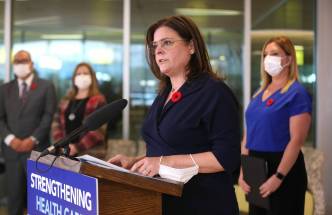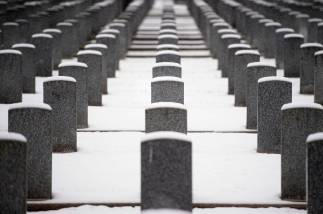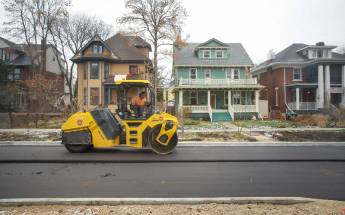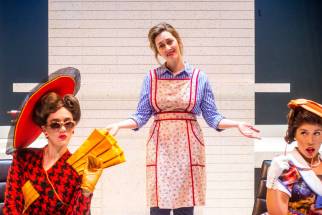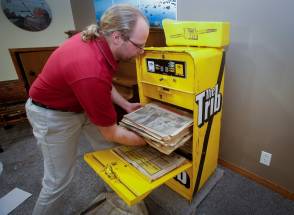We remember for those who can’t — and couldn’t — forget History’s ruinous inhumanity inescapable; honouring the people forced to take part should be, as well
Read this article for free:
or
Already have an account? Log in here »
To continue reading, please subscribe:
Monthly Digital Subscription
$0 for the first 4 weeks*
- Enjoy unlimited reading on winnipegfreepress.com
- Read the E-Edition, our digital replica newspaper
- Access News Break, our award-winning app
- Play interactive puzzles
*No charge for 4 weeks then price increases to the regular rate of $19.00 plus GST every four weeks. Offer available to new and qualified returning subscribers only. Cancel any time.
Monthly Digital Subscription
$4.75/week*
- Enjoy unlimited reading on winnipegfreepress.com
- Read the E-Edition, our digital replica newspaper
- Access News Break, our award-winning app
- Play interactive puzzles
*Billed as $19 plus GST every four weeks. Cancel any time.
To continue reading, please subscribe:
Add Free Press access to your Brandon Sun subscription for only an additional
$1 for the first 4 weeks*
*Your next subscription payment will increase by $1.00 and you will be charged $16.99 plus GST for four weeks. After four weeks, your payment will increase to $23.99 plus GST every four weeks.
Read unlimited articles for free today:
or
Already have an account? Log in here »
Hey there, time traveller!
This article was published 10/11/2022 (1126 days ago), so information in it may no longer be current.
There’s a phrase that comes up often when the talk turns to veterans of past and passing generations. The father who never really opened up to the daughter; the grandfather who tucked his memories, along with his uniform, away in an attic. Those who came before, honoured in occasional ceremonies but always partly opaque, even to those they loved most.
“He never talked about the war.”
That’s not universally true, of course. Some of them did talk about it, most often to each other. Some were always able to tell their spouses or their children what they’d seen. Others did so only in the twilight of their lives when historians came calling, anxious to gather as many oral histories of one or war or another before it slipped from living knowledge.
Still, many never talked. Maybe they couldn’t bear to relive it, couldn’t bear to open the doors in their minds behind which they had placed the memories of friends who didn’t make it. Maybe they thought nobody else could understand what they’d done, and how it had truly felt when they had to do it. Maybe they thought nobody really wanted to hear it.
We remember the stories never told, because so many of those who could tell them never came home, and so many of those who did could not speak of what they’d seen. (Mike Sudoma / Winnipeg Free Press)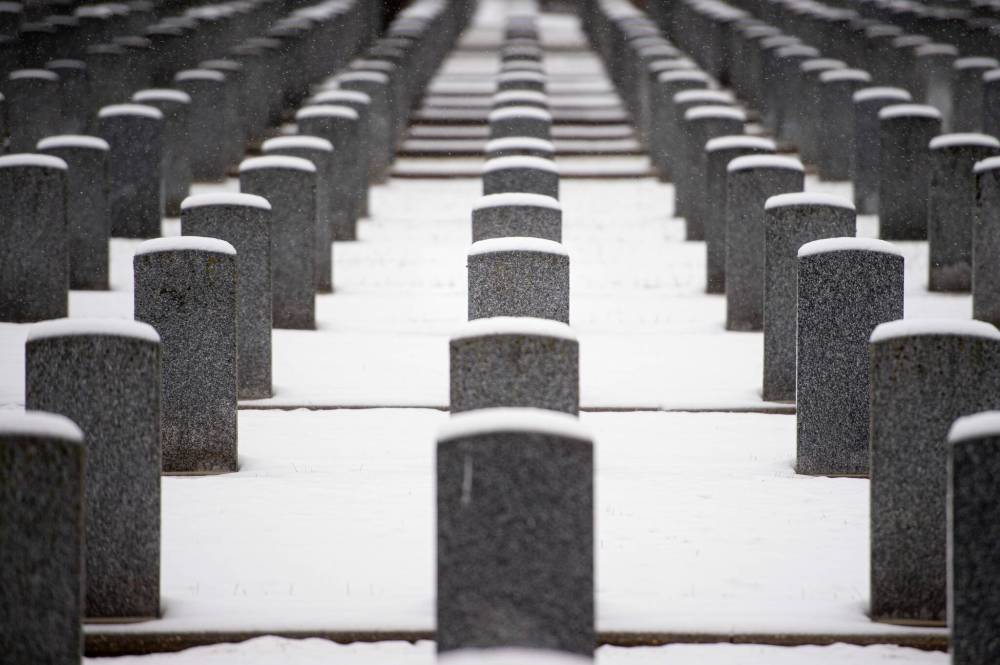
Maybe they were even right. We tend to prefer our narratives of heroism uncomplicated. We like them to be simple. Good guys and bad guys, the returning victors and the glorious dead. Maybe we haven’t really always wanted to know too much about how the living, and the dying, didn’t feel much like glory to those who had been through it.
A terrible thought: there are many common experiences that bind all peoples of the world, and war is also one.
There are so many kinds of war. Wars of aggression, wars of liberation. Wars fomented by outside intervention and wars of exploitation. At the upper echelons of power there are wars of choice and wars that cannot be avoided, though in either case the people who actually fight and die in those wars don’t get much of a say.
Near everywhere that humans touch, war has touched also, and left its imprint on what remains. It has shaped the majority of countries and the majority of cultures. Even in Canada, long shielded by wealth, geography and power from the worst of what a war can do, we are all heirs in some way to past generations that never talked about war.
It’s never-ending, too. Today, in multiple places in the world, that story is being written again anew. That should give us all the more reason to remember. If we’ve been lucky enough in our lives to be shielded from its direct horror, then we mustn’t stop reminding ourselves, again and again, what it really means.
I went to Ukraine in April and I went to Ukraine in August. In the months between, the most notable visual change in the cities away from the front, I thought, was the increase in the amount of amputees I saw on the street. Once, on a short late-August walk around old Kyiv, I counted the men I saw with missing limbs. I got to four by the time I’d gone as many blocks.
How the country adapts to that will be a story in itself. How it must adjust for a whole generation in pieces, and not only in body. Already, Ukraine’s first lady talks about mental health; it will take a lot of resources to ensure that those who survive the fighting will not fall through the gaps of support through which veterans across the world have so long fallen.
Maybe it starts with the talking. If that was the hardest part for veterans past, then it has to mean something.
The Associated Press Files It will take a lot of resources to ensure that those who survive the fighting in Ukraine will not fall through the gaps of support through which veterans across the world have so long fallen.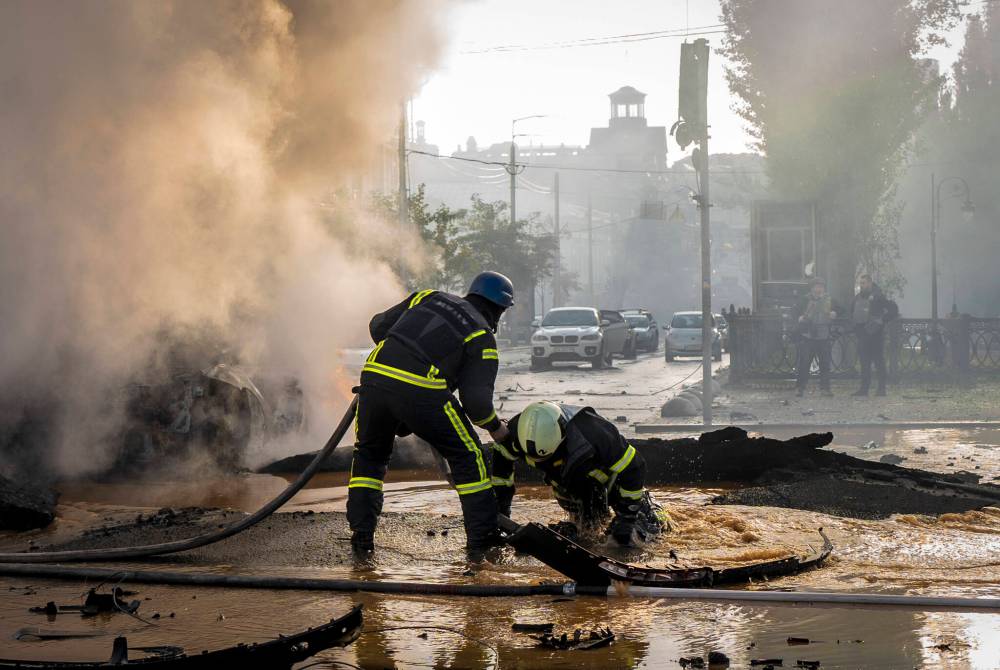
During a conversation late one night in early September on the steps of an old building in Kyiv my friend is smoking a cigarette. He doesn’t usually smoke so much, he says. Only since he came back to Ukraine. It’s being in the army, and with the other soldiers. He smokes to spend time with them.
This friend is a historian and a linguist. He grew up in the Donbas, born to a Ukrainian mother and a Russian-citizen father from Crimea, where the family spent their summers. He studied in Donetsk, but had moved abroad shortly before Russia-backed separatists seized that city in 2014.
He was still living abroad in February, working as a teacher, when the full-scale invasion began. He quit everything, gave up his whole life, went back to Ukraine and enlisted. He didn’t end up fighting. He was tasked instead with helping run the vast human machinery required to mount the nation’s defence.
On many days, he goes to funerals. On many days, he wakes hours before dawn to send new volunteers off to the front lines. On most days, he smokes with the other soldiers while they animatedly relive those parts of war they’ve seen, in equal parts observing and participating in his colleagues’ rituals of camaraderie.
“They tell the same stories,” he says. “Always from the day the war started.”
Mostly, he just listens. He can’t contribute, he wasn’t there. But he listens until he knows their stories as if he was. I ask him why is it always the first day? Why, six months later, is the first day the one these soldiers keep going back to in these regular rituals of retelling?
“They’re still living that day,” he says, exhaling smoke into the space between thoughts. “They can’t leave it.”
I wonder if they will tell those stories to their children, someday. Or if they can only tell them to each other. I wonder, when the war is over, which parts of them will still be left behind on the day it started. And I think of the veterans I’d met over the years, old men with milky eyes and neatly pinned medals, seated at Nov. 11 ceremonies in annually dwindling numbers.
Most of those men must be gone, by now. But which day had it been for them?
On the eleventh day, of the eleventh hour, of the eleventh month, this is what we can remember.
We remember the stories never told, because so many of those who could tell them never came home, and so many of those who did could not speak of what they’d seen. We remember how so many returned to a society that had no language yet for trauma, no capacity to heal minds as well as bodies, no space for them to safely process and release their pain.
We remember that the state that committed its people to wars hasn’t always held up its end for those that fought them. We remember Indigenous veterans of the First and Second World Wars who volunteered by the thousands to fight for a nation that didn’t recognize them as equal citizens. That denied their right to vote. That refused them the same benefits.
We remember the boys sent off to war who came home as broken men. (Mike Deal / Winnipeg Free Press Files)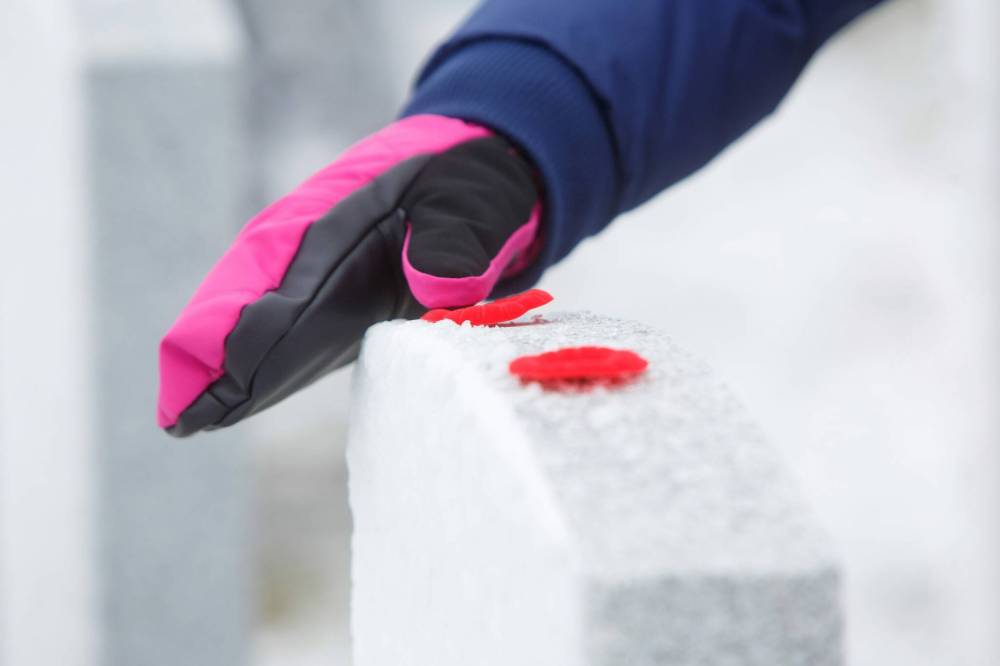
We remember the boys sent off to war who came home as broken men.
Above all, we remember that if we have a duty to the memory of those who are on this day honoured, it should be to make a world in which no more are added to their number. The cynic in me doesn’t believe that will happen; war is too much a part of what humans have so long been. Yet the human in me keeps faith in the possibility of change, as fiercely as it can.
Keep planting that seed, and maybe someday it will grow. Between the crosses, row on row.
melissa.martin@freepress.mb.ca
Our newsroom depends on a growing audience of readers to power our journalism. If you are not a paid reader, please consider becoming a subscriber.
Our newsroom depends on its audience of readers to power our journalism. Thank you for your support.





